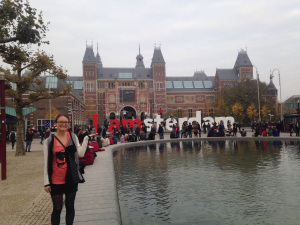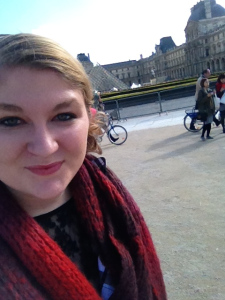Let’s be honest: studying abroad isn’t always cheap. When you think about traveling, eating and just living in your own city, you might be a little intimidated at how quickly those costs can add up. However, there ARE ways to do it for less. We’ve got some tips and tricks on covering the continent without breaking the bank, brought to you by four ISEP students and ISEP Program Officer Will.
Presenters:
Michelle Diederich, Université de Picardie Jules Verne, France
Jonathan Wray, Università Cattolica del Sacro Cuore, Italy
Jessica Honeycutt, American University in Bulgaria, Bulgaria
Anthony Asmar, Universidad de Almería and Universidad de Vigo, Spain
Will Pope, ISEP Program Officer, Germany
Travel
If you want to travel by train, take trains at odd or uncommon hours to get a much better price. — Michelle
When traveling in Italy, use Trenitalia to get good deals. If you are traveling with a friend, you can get two tickets for the price of one on Saturdays. If you are studying in Milan, get a metro card. It’s worth paying the 30 euro monthly fee if you are living there because it will save you a lot of money long-term. If you’re a student in Germany, make sure to get a German Rail Pass. It will let you hop on and off the bullet trains at a much lower price. — Jonathan and Will
If you want to travel by air, take the low-budget airlines. Yes, you have a little less leg room and the customer service leaves much to be desired. Think instead about the five-star dinner you’ll be able to enjoy with all the money you saved on your ticket. Ryanair, easyJet and Vueling are a few of the low-budget airlines you can take advantage of in Europe. Make sure you follow ALL rules set forward by the airline. Slapping a fine on anyone who commits a small error (i.e., bag slightly over size limit, boarding pass not printed out beforehand) is how these airlines make their money. — Anthony
Food
If you don’t want to splurge every night, go to grocery stores or markets and cook for yourself. The ingredients at local stores are so fresh and delicious that even a simple plate of pasta will have you channeling your inner Julia Child. — Jonathan
If you want to go out (but not spend a fortune) find restaurants and bars with an aperitivo. This Italian version of a happy hour will include a drink and food at a very low cost. In Spain, they are called tapas. You can usually find places where you’ll able to get a couple of tapas and a glass of wine for a very affordable price. — Jonathan and Anthony
If you’re in Bulgaria and want to be a bit more adventurous, try the street food! It’s cheap and authentic, and you can enjoy it as you take in the sights around you. Similarly, if you’re in France, check out local patisseries or creperies. You’ll still get the French food feel without the full meal price. — Jessica
Cultural Events
If you’re going to museums or other cultural spots, always ask for a student discount. Many museums or other tourist attractions are free with your student visa or other proof of study. In Germany, you can even get a student discount on beer! — Michelle, Jessica and Will
If you want to go where the locals go, take advantage of anything provided by your university. Events are usually free and can provide a great insight to your local culture. Your university may also have discounted trips to other cities or countries. These trips are a great way to meet other people from your university, and also save money on trips to other places you want to see! — Michelle and Jonathan
More Student Travel Tips
- Use what the university gives you. They will have so many resources available, ranging from student services to cultural events and more. — Will
- Explore your own area. It’s great to travel to other places while you’re studying abroad, but your local city has a lot to offer too!
- Walk. A great way to save money on transportation? Walk! Instead of a costly bus ride that’s just a way to get from Point A to Point B, make it a journey that lets you experience everything around you. — Anthony
- Do your research. You can often find ways to get discounts, as long as you look for them. — Michelle
- Don’t be afraid to go to free things. Just because something is free doesn’t make it any less interesting. — Michelle
- Meet the locals. Befriending locals in your city provides a huge insight into the culture of where you are, and also can get you some great tips on how to navigate your city on the cheap. — Jonathan and Jessica
- Plan ahead. Don’t let a trip that could have been really affordable become really expensive just because you didn’t book far enough in advance. — Anthony
Presenters:
Michelle Dietrich, Université de Picardie Jules Verne, France
Jonathan Wray, Università Cattolica del Sacro Cuore, Italy
Jessica Honeycutt, American University in Bulgaria, Bulgaria
Anthony Asmar, Universidad de Almería and Universidad de Vigo, Spain
Will Pope, ISEP Program Officer, Germany
Like this Story? Also like us on Facebook.


